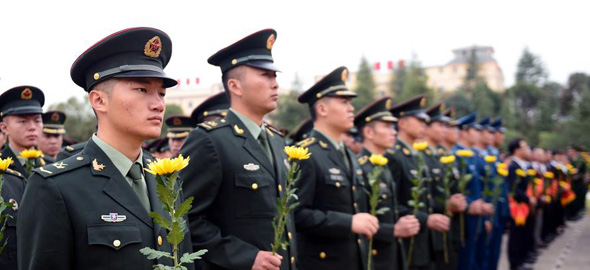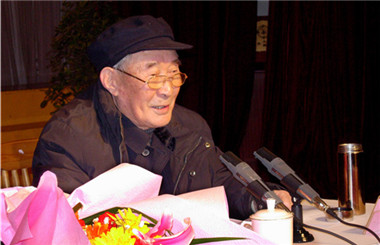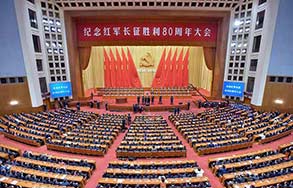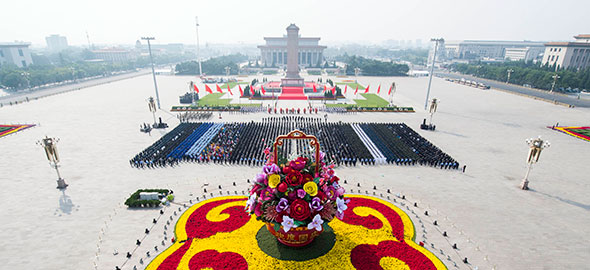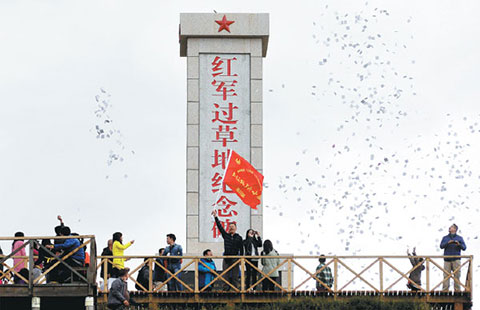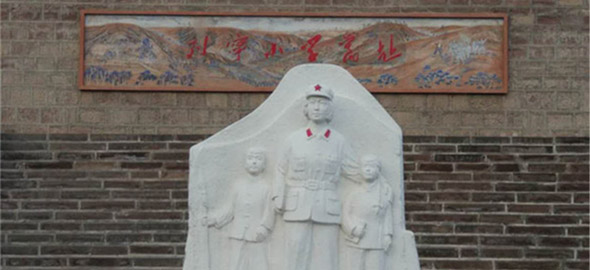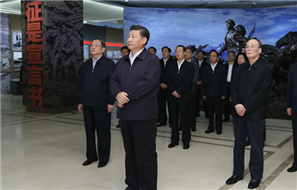80th anniversary of victory of Long March marked in S China
[2016-10-19 14:07]A memorial ceremony commemorating the 80th anniversary of the victory of the Long March by the Red Army is held in Xing'an county of Guilin city, South China's Guangxi Zhuang autonomous region, Oct 18, 2016.
Leaders mark the nation's progress
[2016-10-09 16:10]Top leaders signaled China's growing openness to the outside world and reaffirmed the nation's commitment to maintaining peace, on the eve of the Oct 1 National Day holiday.
'Red Star Over China' to hit Chinese TV screens
[2016-10-19 13:45]A TV series adaption of "Red Star Over China" written by American journalist Edgar Snow, will be screened in China on Saturday.
Tourism with a lesson in history
[2016-10-07 09:07]When you hear the words "Red Tourism", the first things that come into your mind may be "boring and political".
Fighting spirit lives on in Long March veteran
[2016-10-05 10:38]It all started toward the end of 1994, when Li Guang accompanied a charity team to a primary school in Zunyi, Southwest China's Guizhou province.
Long March a 'stately monument': Xi
[2016-10-21 11:03]Chinese President Xi Jinping made the remarks at a gathering on Friday to commemorate the 80th anniversary of the victory of the Long March.
China marks Martyrs' Day, end of Long March at Tian'anmen Square
[2016-09-30 10:53]Spirit of Long March lives on in today's China
[2016-09-23 14:11]
Witnessing the 80th anniversary of the Long March is something I have longed for ever since coming to China eight years ago. I always wanted to get closer to where it all began - the historical roots of the momentous event that led to the founding of the new China.
Ruijin county: A testament to the Long March
[2016-09-26 17:37]
It might not be the most popular county in China. It hasn't got the buzz and shine of some of China's finest cities. But today Ruijin county, the small farming community in East China's Jiangxi province, enjoys a lot of tranquillity compared to the period when it came under siege right before the historic Long March.
Foreign eyes offer new view of the Long March
[2016-09-28 08:02]
In October 1934, hundreds of thousands of Red Army soldiers set out on the Long March, a strategic shift from the forces of the Kuomintang, or Nationalists.
Xi stresses Long March spirit for national rejuvenation
[2016-09-24 02:37]President Xi calls for carrying forth the Long March spirit, striving fearlessly to realize the Chinese dream of national rejuvenation.
